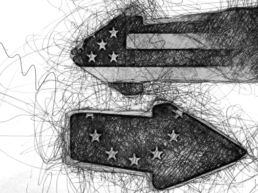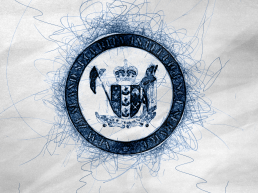Finnish intelligence overseers’ right of access supersedes Originator Control
The Originator Control principle does not prevent the Finnish Intelligence Ombudsman’s access to all material relating to the national intelligence authorities' cooperation with NATO.
Cyber defence operations require a dedicated legal framework
The proposed Cyber Act obfuscates the specific needs and methods of cyber defence operations.
Stalemates in Dutch intelligence oversight
How optimizing the digital capabilities of the Dutch intelligence and security services has derailed.
Obfuscation as a strategy to pass mass surveillance powers
The Dutch government wants to automatically and administratively gain permission to target victims of hackers.
The necessity of a new cyberlaw for dutch intelligence and security services
The proposed Cyber Act addresses the urgent need for stronger intelligence capabilities and revised oversight structures in the Netherlands.
NL government wants to abandon key safeguards for hacking of non-targets
The Dutch government wants to automatically and administratively gain permission to target victims of hackers.
Confronting a blunt Tool: Perspectives on Israel’s mass surveillance litigation
This “Israeli Snowden moment” might tip the scale towards greater proportionality in the laws concerning bulk data collection.
Dutch watchdog orders bulk datasets held by intelligence services to be deleted
The Complaints Department of CTIVD has used its binding authority for the first time. Though the Dutch secret services are now compelled to delete unlawfully held data, weaknesses of the oversight system are evident.
The EU’s Proposed Data Act: Regulating International Flows of Non-Personal Data
The U.S. government has consistently denied deploying its foreign intelligence apparatus to benefit U.S. companies. The Data Act proposal proceeds on the premise that it does.
Five things you didn’t know about Germany’s foreign intelligence reform
An account of 5 critical changes that merit careful scrutiny from the international community.
Privacy risks of (automated) Open Source Intelligence (OSINT)
The privacy interference in the current practice of ‘automated OSINT’ can no longer be perceived as ‘minor’ and begs for a legal debate and sufficient legal safeguards.
Ethics in surveillance research: from theory to practice
Nurturing a democratic culture is key to ensuring ethical research on surveillance technology.
Update on the Dutch “Dragnet-Act”: One step forward, two steps back?
A second Amendment Proposal prepared by the government is feared to fundamentally threaten effective oversight.
U.S. and European Surveillance Law Regimes: Time to Adjust the Contrast?
Basic requirements for a more lasting transatlantic data transfer architecture.
France’s tepid intelligence reform
Draft law to introduce new data analysis capabilities.
The urgent need to #reclaimyourface
A once-in-a-generation opportunity to ban biometric mass surveillance.
Research and innovation for a responsible EU security policy
We can’t rely on technologies developed outside our borders.
![]() by Arthur Messaud & Noémie Levain
by Arthur Messaud & Noémie Levain
CJEU rulings v. French intelligence legislation
The Conseil d'État deliberately misinterpreted the EU Court.
French Council of State discovers the ‘philosopher’s stone’ of data retention
A legal analysis on the Court’s recent ruling.
EU-funded technology violates fundamental rights
Why the EU’s iBorderCtrl project is being challenged in court.
The EU’s R&D process: unaccountable, unethical, even illegal?
European taxpayers likely fund discriminatory technology.
France’s police bill: surveillance for the long haul
The French state’s illiberal drift.
Beyond Europe: the political economy of bulk data collection
South Africa’s mass surveillance ruling offers an opportunity for fresh debate.
‘Smart’ video surveillance for the common good
The time for fearing these technologies is over.
The global significance of South Africa’s mass surveillance ruling
South Africa’s foreign SIGINT capabilities shut down.
GCHQ’s ethical approach to AI: an initial human rights-based response
It’s more than just the Right to Privacy at stake.
Brexit highlights the EU and UK data protection regimes
The consequences for large-scale intelligence collection and civil liberties.
Germany’s BND Act & recent CJEU case law
Some provisions of the draft bill seem incompatible with CJEU rulings.
Aspects where Germany’s draft Federal Intelligence Services Act misses the mark
The draft BNDG undermines requirements set by the Constitutional Court.
A new digital hub for intelligence law and oversight
One searchable database for all documents about intelligence.
The quantum threat: why we need regulation and transparency
The high-stakes game of shaping the internet of tomorrow.
The unwanted reader: BND draft bill would continue the surveillance of journalists and their sources
The German government fails to secure essential journalistic protections.
The BND’s future foreign intelligence collection is likely to remain poorly overseen
The German Chancellery’s new draft bill ensures no oversight institution really knows what goes on at the BND.
EU-wide facial recognition forensics & its drawbacks
Challenges for privacy and non-discrimination with the inclusion of facial recognition for the next generation Prüm framework.
Is SIGINT coming to an end?
The German foreign intelligence service must remain operational and internationally connected.
Facial recognition can make us safer
If high standards are observed, automated facial recognition can prevent crime without infringing on basic rights.
Dual-use surveillance tech: How trade agreements can incentivise good behaviour
The carrot is mightier than the stick.
New hacking powers for German intelligence agencies
The Grand Coalition's draft law can’t keep up with what is already practiced in other democracies.
Wanted: better safeguards for intelligence in an interconnected world
Everyone’s a foreigner somewhere.
A city with a thousand eyes: mass surveillance in Belgrade
Big brother must be banned.
A strange war
How France abandoned its secular foundation to build an anti-terrorist republic.
Spain’s digital future rests on learning from past errors
The Spanish government’s new Digital Agenda should think of security, the economy, and privacy as interconnected.
A recipe for hypocrisy: democracies export surveillance tech without human rights
Controlling the spread of surveillance technology is a moral, legal, and strategic imperative.
Can MI5 agents get away with murder?
The Security Service’s secret policy on participating in crime.
France’s second try at the Intelligence Act
What the French Parliament needs to discuss in its upcoming legislative debate.
Greece: Technology-led policing awakens
Hellenic police and border authorities are bulking up on surveillance.
Data in policing: a responsibility to use responsibly
Why clean data & ethical frameworks are vital for predictive policing.
Covid-19 tracking apps, or: how to deal with a pandemic most unsuccessfully
Are tracking apps really the solution or do they just add surveillance creep into democratic societies?
Covid-19: European rules for using personal data
How GDPR, the Data Protection Directive, and the European Convention on Human Rights guide what European states are allowed to do in the wake of the pandemic.
Try harder, Bundestag! Germany has to rewrite its foreign intelligence reform
What the German Constitutional Court’s decision on the BND Act means for the future of surveillance and end-to-end oversight in Germany.
AI and national security: learn from the machine, but don’t let it take decisions
How intelligence agencies can use AI in an effective and accountable way.
A global look at oversight cooperation
NGOs from around the world compare their countries’ experiences with intelligence sharing.
The Polish surveillance regime before the ECHR
After ignoring the Constitutional Tribunal’s call for greater oversight and safeguards, Polish surveillance law is bad news for human rights.
Predictive Policing: A force for public good
How one police department hopes to lead by example.
Covid-19: Why states now need to consider self-restraint in the cyber domain
Current cyber operations of Chinese intelligence are hurting Beijing’s global leadership project.
Staring down the securocrats
In a rare encouragement for public oversight, South Africa has indicated to use location data responsibly in the fight against Covid-19.
This window of opportunism
China's new surveillance reality mustn't change what Europe considers a reasonable invasion of privacy in tackling Covid-19.
Containing Covid-19: countries leverage communications surveillance data
How the UK compares to the European, Israeli, South Korean, and Singapore models.
The Club de Berne: a black box of growing intelligence cooperation
An in-depth account of how this notoriously secret club has expanded over the years.
Digital technologies in peace operations
As conflict moves to the cyber realm, peace efforts must, too.
European metadata retention: news from the EU court
An analysis of the AG’s opinion on data retention and access to metadata at the court in Luxembourg.
Fresh, fair, and smart: data reliability in predictive policing
The concerns of "dirty data" in data-driven policing.
Years of MI5 lawbreaking expose failure of UK surveillance safeguards
The only thing worse than secret services with sweeping surveillance powers is secret services with sweeping surveillance powers that are left unchecked by a toothless oversight system.
A search for common ground: export controls on surveillance technology and the role of the EU
On the recent past & possible future of regulatory efforts aimed at preventing autocratic repression “Made in the EU”.
Public engagement is key for robust intelligence oversight
How conferring with civil society reference groups can help intelligence oversight bodies do their job.
Update pending: intelligence oversight needs oversight intelligence
Seven ideas for how to close the gap between high-tech intelligence and low-tech oversight.
Sitting on the steel fence: my dialogue with the intelligence world
Digital evidence expert and public policy analyst Peter Sommer looks back at nearly three decades working as an intermediary between the public and the secret world.
Another layer of opacity: how spies use AI and why we should talk about it
Thanks to the AI hype, for perhaps the first time ever, the wider public might get to monitor and address technological & operational transformation in Signals Intelligence as it unfolds.
Austrian government’s hacking law ruled unconstitutional
Why the Constitutional Court of Austria scrapped government spyware & street surveillance.
Casual attitude in intelligence sharing is troubling
The Dutch secret services share data with foreign services far too easily. Better legal and internal safeguards are essential.
Bridge of trust
How the Norwegian oversight body mediates between the intelligence services and the public.
Hardwired bias: how data-driven policing exacerbates racial discrimination
New report by the European Network Against Racism shows ostensibly neutral police tools could disproportionately impact and further disadvantage racialised communities.
Predictive policing: positivism is not enough to rule our complex world
The key concern with artificial intelligence is not (only) its potency but its inability to seek justice.
A simple yet existential demand: let oversight bodies work together
A veteran’s perspective on European intelligence oversight: where it’s been, where it’s going, and why we need to internationalise it.
Augmentation as artifice: a Palantir look at AI
How the big data analytics company focuses on supporting rather than displacing human decision-making.
FRAgile liberty: why we brought Sweden before the Strasbourg court
One of the counsels for the applicant in Centrum för Rättvisa v. Sweden at the European Court of Human Rights explains the case against the Swedish bulk collection regime and what the pending judgment means for civil liberties in the digital age for all of Europe.
GCHQ embraces AI, but not as a black box
AI can augment human creativity and help keep societies safe, but only if issues of bias and transparency are adequately addressed.
A healthy thing for democracy: how my office engages with civil society
The former Inspector-General of Intelligence & Security of New Zealand on her experience with setting up a civil society focus group.
Enhance & internationalise the oversight mandate
Intelligence oversight needs stronger regulatory support to effectively monitor increasingly international intelligence practice.
Why we’re launching about:intel
Editors-in-Chief Thorsten Wetzling and Eric Kind explain why we started about:intel and what we are trying to achieve with it.












































































